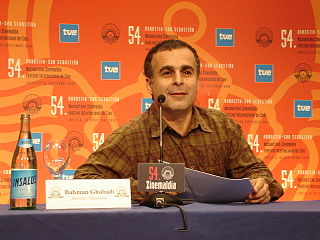A Quote by Alex Gibney
Critics can say what they like about the films, but very often, there's a certain expectation of documentaries that they're supposed to be like PowerPoint presentations. I see documentaries as movies. So when I see some critics writing that we could have done without the recreations altogether - well, perhaps.
Related Quotes
The reason we see more recreations is because people want to re-introduce some iconic songs to the younger generation. I support recreations too, as long as they're done well and respectfully. I have done a couple myself too, but when I recreate a song, I do it like a tribute to the makers of the original song.
The message films that try to be message films always fail. Likewise with documentaries. The documentaries that work best are the ones that eschew a simple message for an odd angle. I found that one of the most spectacular films about the Middle East was 'Waltz With Bashir,' or 'The Gatekeepers,' or '5 Broken Cameras.'
I read reviews of critics I respect and feel I can learn something from. Right now there are a lot of bottom-feeder critics who just have access to a computer and don't necessarily have an academic or cinema background that I can detect, so I tend to ignore that and stay with the same top-tier critics that I've come to respect. I like reading a good review - it doesn't have to be favorable, but a well-thought-out one - because I very much appreciate the relationship of directors and critics.
PowerPoint presentations, the cesspool of data visualization that Microsoft has visited upon the earth. PowerPoint, indeed, is a cautionary tale in our emerging data literacy. It shows that tools matter: Good ones help us think well and bad ones do the opposite. Ever since it was first released in 1990, PowerPoint has become an omnipresent tool for showing charts and info during corporate presentations.
I have always considered The Merry Wives one of the worst plays, if not altogether the worst, that Shakespeare has left us. The wit for the most part is dreary or foolish; the tone is coarse and farcical; and the characters want the fine distinctive touches he so well knew how to give. If some luckless wight had written such a comedy in our time, I should like to see what the critics would say to it?




































